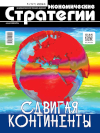Artificial Intelligence: Ability of Judgment? Natural Force or Driver Behind AI
DOI: 10.33917/es-5.197.2024.70-79
Currently, the topic of super-AI (Artificial General Intelligence or AGI) has captured the world’s press. Some are fascinated by the incredible possibilities, including the creation of a future global government, while others fear the arrival of an alien mind capable of displacing man. The authors show that, as usual, both positions miss the mark. There is no doubt that AI is a fundamentally new tool. Therefore, it can be both extremely useful and immensely dangerous, depending on its application. One thing is clear: innocence has been lost and it will not be possible to rewind it. The world is entering a new phase of development with the enormous potential. However, the transition period threatens with even greater dangers than the first half of the 20th century, when the advent of the internal combustion engine to replace the steam one has led to dramatic shifts in the economy and a change in political dominance against the backdrop of two world wars.
As industrial productivity growth decreases, financialization grows, oppressing the “real” sector, demographics is falling and the world is sliding into wars for dominance against the backdrop of the fading industrial society of the 20th century.
References:
1. Badalyan L.G., Krivorotov V.F. Industrial’nye Srednie veka, ili Est’ li zhizn’ posle industrial’nogo kapitalizma? Chast’ I [Industrial Middle Ages, or Is There Life After Industrial Capitalism? Part I]. Rossiyskiy ekonomicheskiy zhurnal, 2023, no 3, pp. 17–37.
2. Badalyan L.G., Krivorotov V.F. Industrial’nye Srednie veka, ili Est’ li zhizn’ posle industrial’nogo kapitalizma? Chast’ II [Industrial Middle Ages, or Is There Life After Industrial Capitalism? Part II]. Rossiyskiy ekonomicheskiy zhurnal, 2023, no 4, pp. 4–23.
3. Corsini R.J. The Dictionary of Psychology. London, Routledge, 2016. P. 494.
4. Davidson H. Alfarabi, Avicenna, and Averroes, on Intellect. Oxford University Press, 1992, p. 6.
5. Colman A.M. A Dictionary of Psychology. 3rd ed. Oxford [etc.]. Oxford University Press, 2008.
6. Sangha N. Instinct, Intellect, Intelligence, Intuition. Occult Mysteries, 2015, available at: https://occult-mysteries.org/intelligence.html
7. Kant I. Kritika sposobnosti suzhdeniya: Sobr. soch. [Critique of Judgment: Collected Works]. Vol. 5. Moscow, Mysl’, 1966.
8. Zhukovskiy V.A. Skazka o Ivane-tsareviche i Serom Volke [The Tale of Ivan Tsarevich and the Gray Wolf]. Moscow, Prospekt, 2013, 31 p.
9. De Gruyter. Kant and Artificial Intelligence. Edited by Hyeongjoo Kim and Dieter, 2022.
10. Asimov I.I, Robot. Garden City. N.Y., Doubleday, 1950.
11. Zhuravlev Yu.I. Ob algebraicheskom podkhode k resheniyu zadach raspoznavaniya ili klassifikatsii [On an Algebraic Approach to Solving Recognition or Classification Problems]. Problemy kibernetiki, vyp. 33. Moscow, Nauka, 1977.
12. Zhuravlev Yu.I. Korrektnye algebry nad mnozhestvami nekorrektnykh (evristicheskikh) algoritmov [Correct Algebras over sets of Incorrect (Heuristic) Algorithms]. Kibernetika, 1977, no 4; 1978, no 8.





